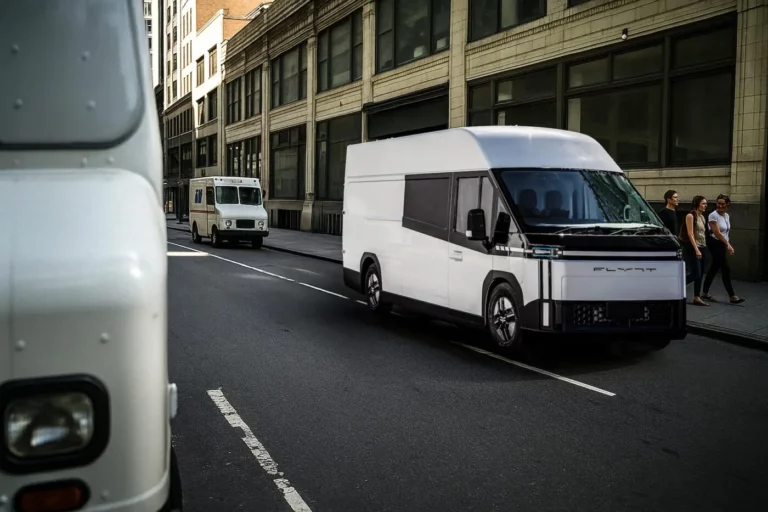Dutch Startup Flynt Enters European Electric Van Market
Flynt, a Dutch startup, is shaking up the European light commercial vehicle market with its debut fully electric van. The new electric vehicle, known as eLCV, is designed to travel up to 500 kilometers on a single charge while offering a low total cost of ownership (TCO). The van is slated for release in 2026.

The eLCV has been developed specifically for European cities, regions, and last-mile delivery services. Flynt emphasizes that the vehicle combines exceptional efficiency, impressive payload capacity, and a digital driving experience within a robust and versatile design. Notably, the model can also be configured as a camper van.
Flynt’s approach differs from traditional automotive manufacturers. The company has adopted an ‘asset-light’ business model, partnering with MiracoMotor, a subsidiary of the Chinese automotive group GAC, for research, development, and production. This collaboration brings together European design and market understanding with cutting-edge EV technology from China.
“China is not only a workbench for the world but also a leader in electric mobility,” stated co-founder Rogan Liu. “This expertise is crucial in developing a vehicle that meets current and future requirements.”
Key Features of Flynt’s Electric Van
- System voltage: 800 volts
- Battery: 100 kWh/NCM
- Consumption: 20 kWh/100 km (3.5 tonne class)
- Range: up to 500 km (WLTP)
- Charging power: 22 kW AC, 220 kW DC (30-80% in 20 minutes)
- Bidirectional charging functions: Vehicle-to-grid (V2G) and vehicle-to-load (V2L)
- Payload: Up to 1,630 kg with up to 16.5 m³ loading volume
- Driving experience: Digital cockpit with 12.8″ main display, mobile workstation
- Assistance system: Level 2 ADAS comes standard, L4-ready architecture
Flynt’s focus is on achieving a low total cost of ownership through reduced maintenance costs, high energy efficiency, and minimal downtime, aiming to make diesel vans obsolete in the long term.
The company worked closely with European fleet operators over 18 months to tailor the vehicle to industry needs, from charging infrastructure to the mobile office in the driver’s cab. This customer-centric approach extends to Flynt’s business model, which includes selling vehicles and digitally mapping the entire customer journey through a dedicated platform.
The prototype was showcased to selected media in China in January 2025. The vehicle will be introduced in Europe this summer for pilot projects and customer tests, with the official market launch planned for 2026, initially in Germany and Norway.
Flynt faces competition from established electric transporters like Mercedes-Benz’s eSprinter, Iveco’s eDaily, and Ford’s e-Transit, as well as newcomers such as Flexis, a collaboration between Renault, the Volvo Group, and CMA CGM.



